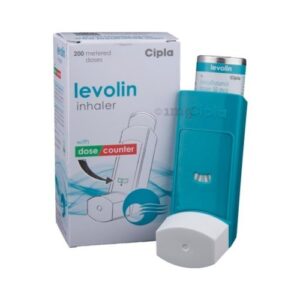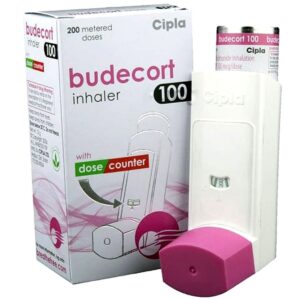Approximately 300 million people worldwide are living with asthma. The number is expected to rise to 400 million by 2025. Right now, India is home to one-tenth of the total asthmatics in the world (30 million). The disease is often underdiagnosed in our country(especially in children), which means the actual number of asthma patients in our country should be much higher than 30 million.
According to available data, asthma is seen in 2.4% of the adult population in India. In children, the prevalence is estimated to be between 4-20% (depending upon geographical location, methodology for diagnosis, ethnicity, or other parameters). Overall, asthma is seen in 4.75% of children with a higher burden in the 5-11 year age group (10-15%).
Asthma is a disease caused by airway hyperresponsiveness to different stimuli(dust, pollen, microbe, smoke, etc. ) presenting as episodes of cough, cold,(with or without fever), and respiratory distress. Most cases are manageable at home, but sometimes severe respiratory distress may need hospital admission. Repeated attacks of cough, cold, and fever usually result in loss of school days, poor academic and extracurricular activity along with poor growth and development.
Controlling asthma has two main components
- Reduce the exposure to stimuli that triggers an asthma attack
- Decrease the hyperresponsiveness of the airway.
If these two are not done properly, the child will have repeated episodes of asthma exacerbation(asthma attack).
There are two types of inhalers(aka “metered dose inhalers or MDI”) used in asthma
- Relievers(used in the acute attack)
- Controllers( used to prevent attack)
Relievers are used only during episodes of cough or respiratory distress. they are short-acting beta-agonists, salbutamol, or levosalbutamol.

Controllers are used for a prolonged time( months to years). Steroids and long-acting beta-agonists are used as controllers. Budesonide(a steroid) MDI is the most common controller used in children.

Other MDIs that are used in children are -fluticasone(steroid, used above 4 years of age), beclomethasone(steroid, used above 4 years of age), ciclesonide ( steroid, used above 12 years of age), salmeterol(long-acting beta-agonist, used above 4 years age).
Depending on the severity of asthma dose of steroids in the inhaler is categorized as high, medium, and low. Most children respond well to low or medium doses. Those who need high-dose steroid MDI, are treated with low-dose steroids with a long-acting beta-agonist combination (or Montelukast orally) for the lowest possible steroid dose.
Here are some of the common questions on inhaler use
Q1. How long do I need to continue inhaler?
Ans: Well, that depends on multiple factors; Mostly, your Child’s asthma type. most cases of asthma are intermittent and mild persistent. This variety of asthmas generally has a favorable course. When your child is on controller and symptom-free for more than 3 months your pediatrician may decrease or stop the medication. The management of moderate/severe persistent asthma is difficult and the child may need prolonged inhaler therapy(years to decades ).
Q2. Does an inhaler cause dependence?
Ans: No, Inhalers do not cause dependence.
Q3. Is there any side effect of the inhaler?
Ans. Previously was a concern that prolonged use of steroid inhalers may cause decreased bone density, short height, and suppression of the adrenal gland. But recent evidence shows that low-dose inhaled corticosteroid does not affect growth or bone mineral density or adrenal gland, even after 2-22 years of therapy.
But, some minor side effects may arise in a few patients, like
- Fungal infection in the oral cavity or oral candidiasis (prevented by oral rinsing after each puff)
- Rhinitis/ nasopharyngitis/ respiratory tract infection/ pharyngitis etc.
Q4. It has side effects-then why should I use it?
Ans: The side effect of any drug should always be weighed against its potential benefits on use. You know that on vaccination your child experiences fever and malaise. Did it ever stop you from vaccination? The same rule applies here.
The risk of not using inhalers are plenty . Recurrent attacks of uncontrolled asthma can cause loss of school days, decreased sleep, poor memory, poor academic and extracurricular activity, poor growth, and many more. These outshine some minor side effects which may be seen in some children.
So. you should always consider starting and sticking to inhaler therapy when your pediatrician advises you to do.
0 Comments